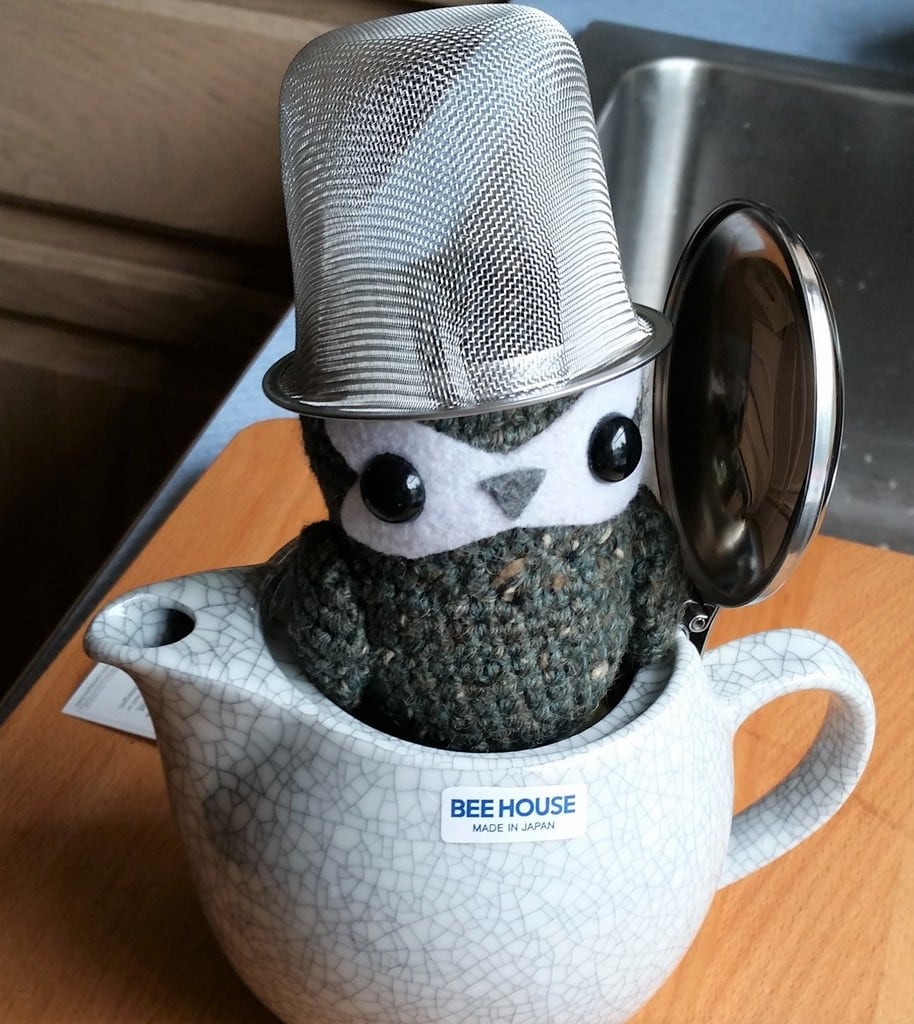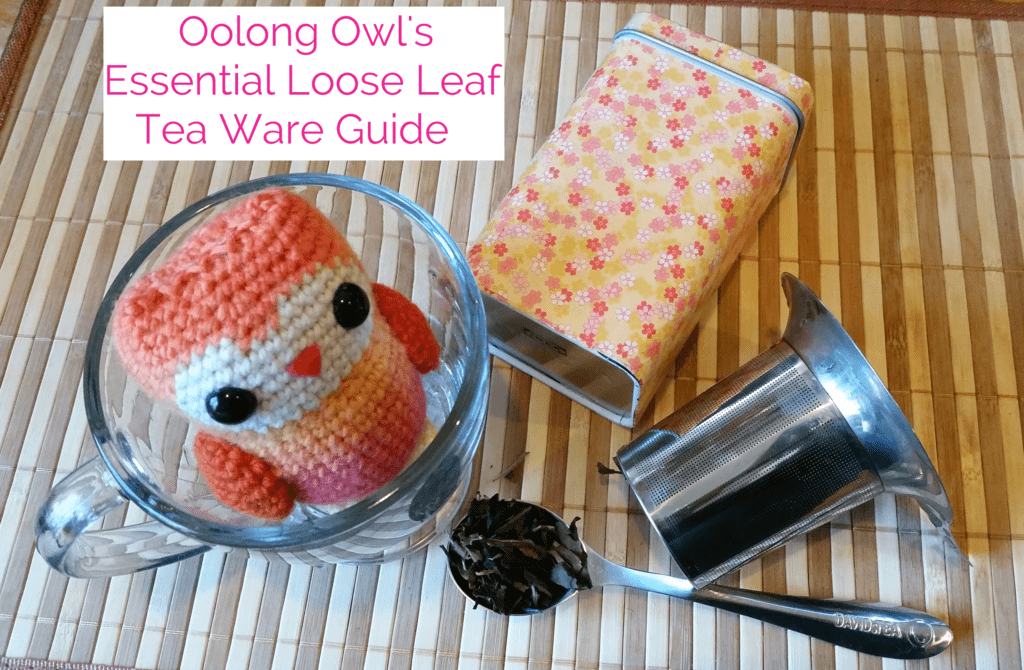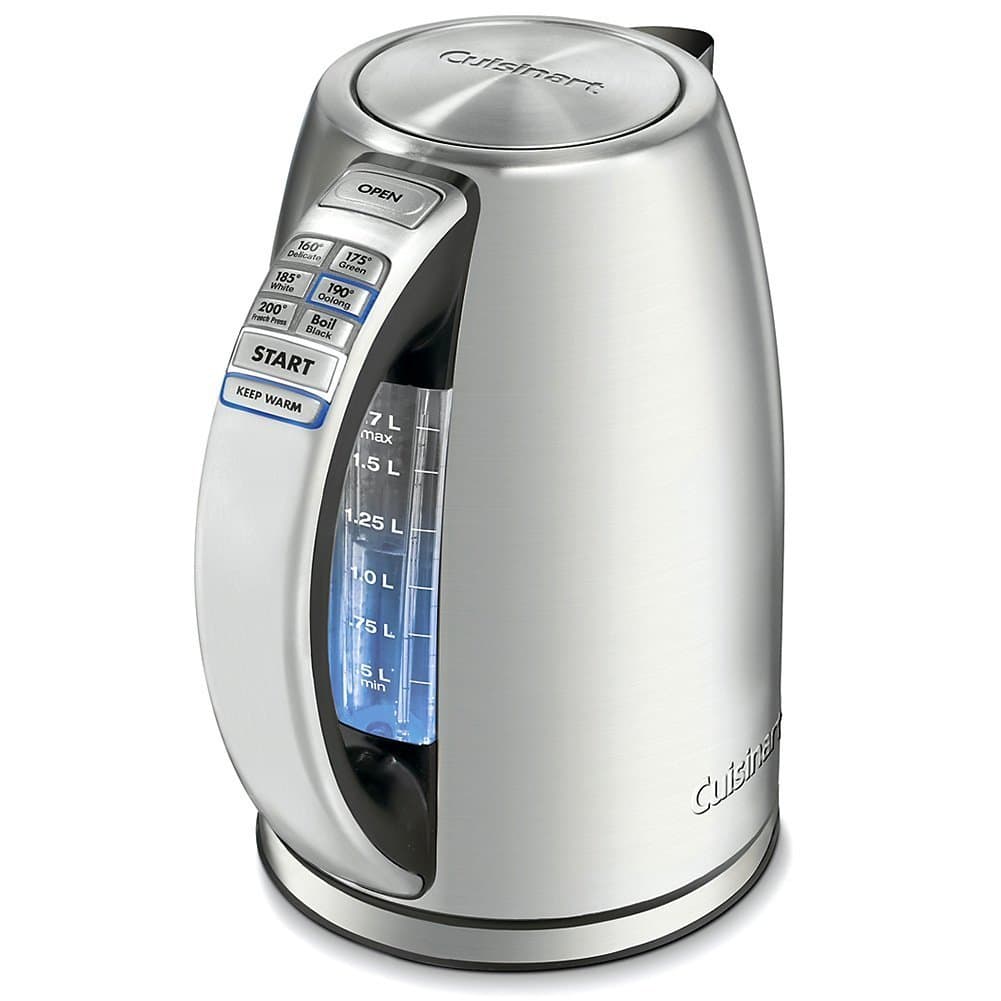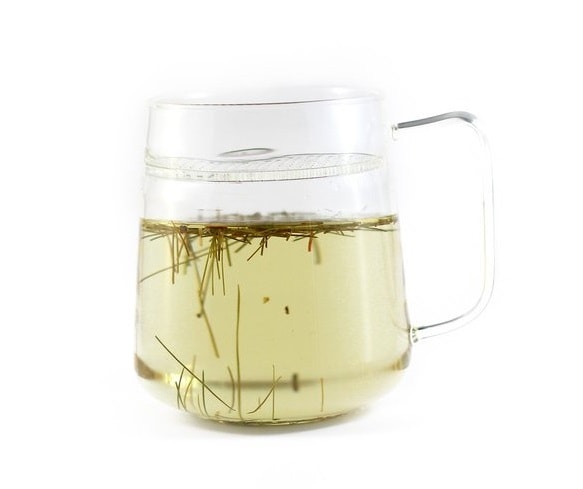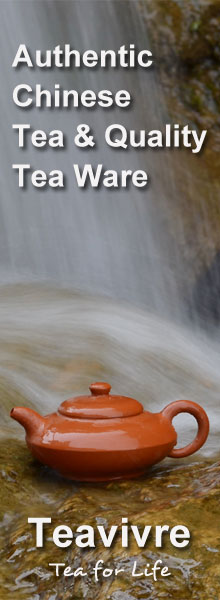I am back with another Silk Road Teas. After the excellent showing of Golden Monkey Black and Drunken Concubine Oolong, I am really excited to try Silk Road Teas’ 2001 Aged Peony.
The package says simply “Aged Bai Mu Dan” but the website goes into details that this is a high-grade Fujian Zhending Big White varietal from 2001. I have had a number of aged Shou Mei, but not as many Bai Mu Dan. The last aged Bai Mu Dan I had was a 2013 and it still has a bit of green fragility to it.
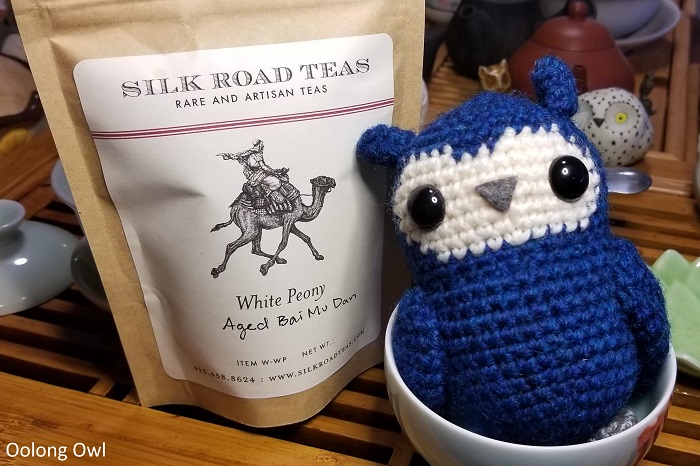
Leaf and Steeping Method
The leaf is certainly a Bai Mu Dan. You can see the fuzzy (balding with age) buds and leaf.
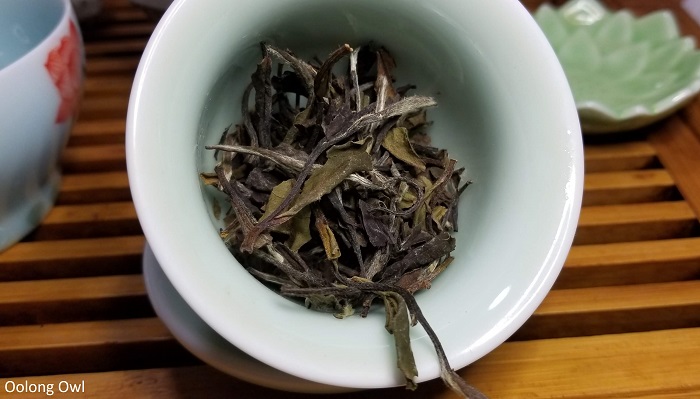
Aged Peony smells of old hay. The leaf is quite light and brittle, similar to other old loose whites I’ve had. The gaiwan looks overly full for white, but I am going the usual 1 gram of leaf to 20ml of vessel size ratio. The hot leaf smells like coconuts and straw.
Tasting of Silk Road Teas’ 2001 Aged Peony Bai Mu Dan
First and Second Infusion: I gave the rinse and sip and it was full of fuzzies.
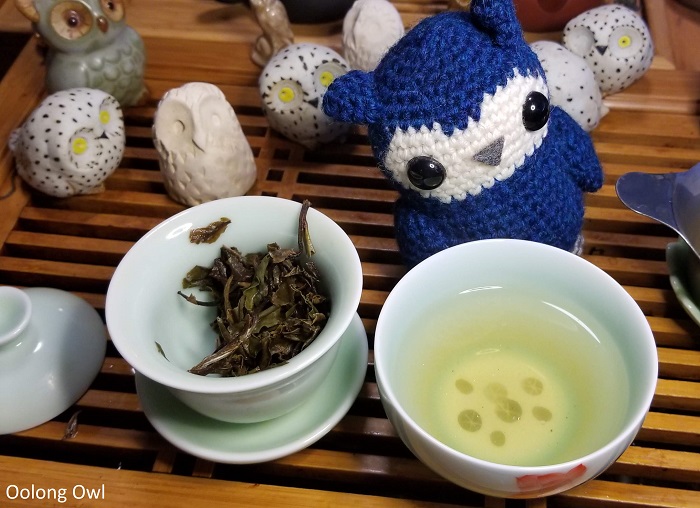
The 2001 Aged Peony’s texture shows up immediately as it sips in like melted ice cream thick and smooth. The flavour is creamy milky vanilla, stale coconuts, with a bit of sweet hay. Some sips have a touch of tobacco darkness It is an interesting tea as the sip blooms into a big flavour punch.
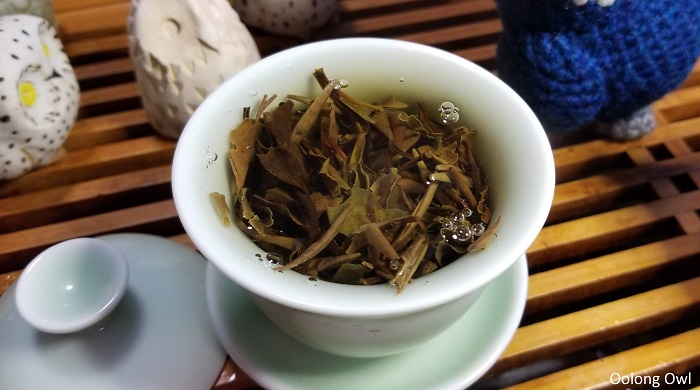
Third, Fourth, and Fifth Infusion: The darkness in Aged Peony looms above. There are tobacco, a bit of malted milk and wheat notes, with herbaceous zip at the end of the sip. It is still ultra thick tea and the aftertaste is the silky coconut flavour and texture.
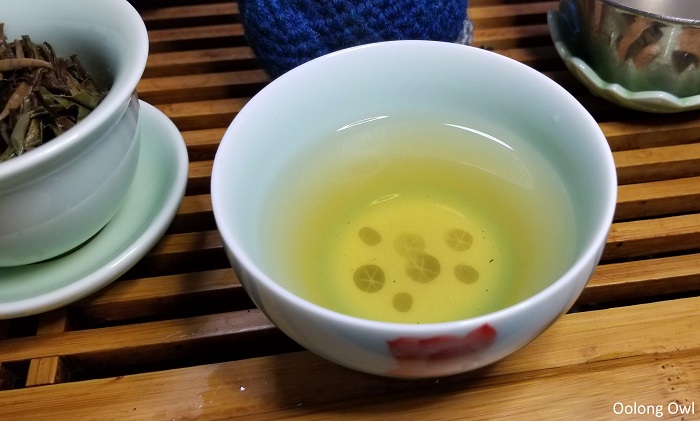
Sixth and Seventh Infusion: The tea colour is going coppery but the camera keeps switching it gold. Aged Peony is still thick and it sips down like a brick going through the digestive system. The flavour is mellowing out with notes of old straw, wheat, and stale cantaloupe.
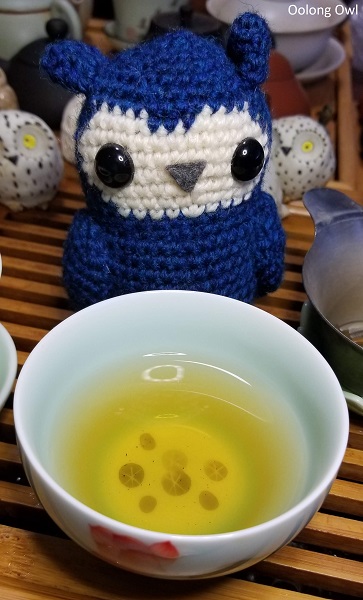
Eighth, Ninth, and Tenth Infusion: I let this steep go for 5 minutes. Aged Peony is starting to get astringent as I can feel my tooth enamel. The flavour has changed again. It is darker wheat, straw, a bit birch wood, but overall pretty smooth of a tea.
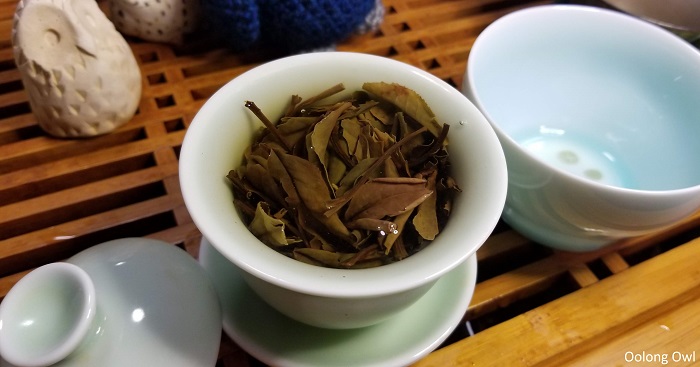
Eleventh and Twelfth Infusion: I was wondering if this tea would be toast now. At these long infusions, the flavour is shifted to honey and birch wood with a bit of a dried oregano note. It is has reached peak sweetness and I can down a cup super fast, and stuck waiting over 10 minutes for the next round. It is a bit astringent, drying the roof of my mouth a bit.
The spent leaf is olive greens and strangely a bit of mauve and plum browns.
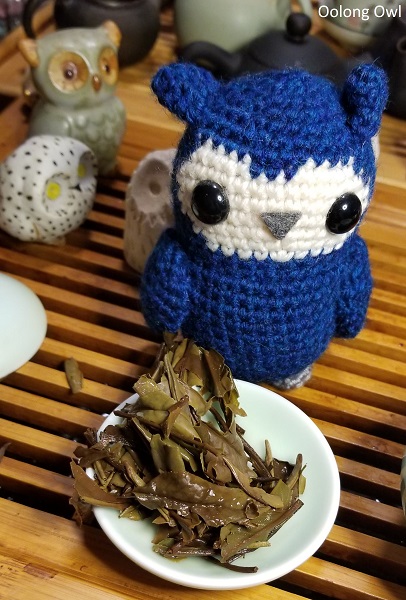
Comments
Silk Road Teas’ 2001 Aged Peony Bai Mu Dan is a pretty smooth and sweet white. It is interesting as the ageing rounded off the green sharp flavour into more mellow soft ones, but also kept the coconut notes. The later infusions got honey and sweet. Likely more infusions could be had if I used my white clay pot as the heat retention is better, but I still got a good amount of infusions. My gaiwan was just getting too cold as it is so small.
I enjoyed this tea as it has given a preview what a good Bai Mu Dan can age into. They certainly don’t get as dark as a Gong Mei or Shou Mei, but an aged Bai Mu Dan has its own unique flavour profile.
The price of this aged white is pretty good, $19.50 for 1/4lb. To be honest, it drives me nuts that Silk Road Tea prices in pounds, the unit is too high for consumers.
(tea provided for review)






